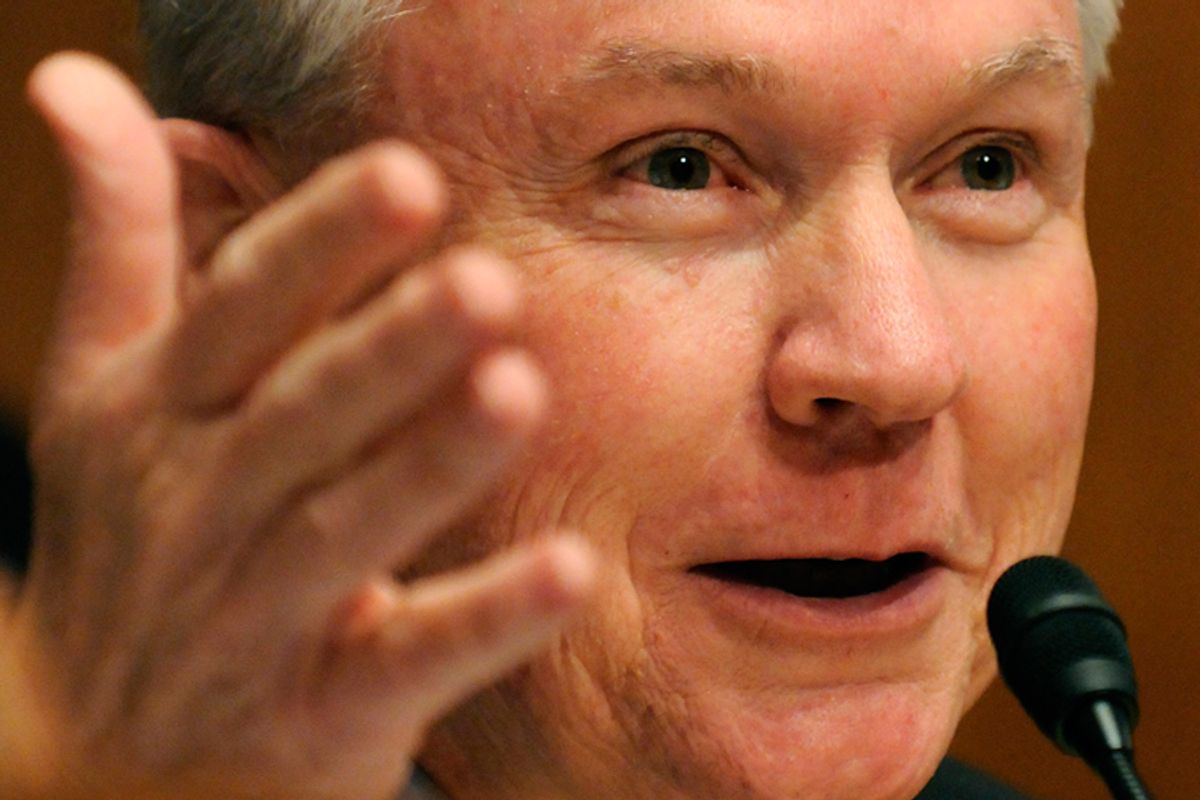Whenever Sen. Jeff Sessions, R-Ala., insinuates that Elena Kagan is lying in her testimony before the Senate Judiciary Committee about military recruiting at Harvard Law School, it is worth recalling the dubious quality of his own testimony before the same committee when it rejected his nomination for a federal judgeship in 1986. At the time, to put it politely, he appeared insufficiently candid on certain crucial matters.
Of course everyone knows that the fundamental reason for the committee's decision to dump Sessions was his unreconstructed Deep South attitude, usually described in the oh-so-careful Washington lexicon as a "lack of racial sensitivity." Copious evidence included persuasive testimony from former colleagues who recalled his appalling remarks in private about the Klan (he liked them until he learned that some Klansmen were "pot smokers"), the NAACP ("un-American" and "Communist-inspired") and the American Civil Liberties Union (also "un-American" and "Communist-inspired"). He had castigated a white lawyer who fought for equal voting rights as "a disgrace to his race" and repeatedly called a black assistant U.S. attorney "boy," warning him to "be careful what you say around white people."
The squalid legal career of Sessions, who had misused his power as U.S. attorney to protect Alabama's racist political machinery, was thoroughly examined in 2002 by the New Republic's Sarah Wildman. She reported that Sessions admitted making some of the ugly remarks and denied others, but dismissed them all as mere joking. But Thomas Figures, the black former U.S. attorney who had worked for Sessions, was not amused:
Sessions, he said, had called him "boy" and, after overhearing him chastise a secretary, warned him to "be careful what you say to white folks." Figures [said] ... he too had heard Sessions call various civil rights organizations, including the National Council of Churches and the Southern Christian Leadership Conference, "un-American." Sessions denied the accusations but again admitted to frequently joking in an off-color sort of way.
While Sessions acknowledged that some of the allegations were true -- including the ugly "disgrace to his race" comment -- he denied calling Figures "boy." But Sen. Howard Metzenbaum, D-Ohio, since deceased, said publicly that he didn't believe Sessions. The nominee had "changed his statements" from one hearing to another, complained Metzenbaum, because "he fully understood that these statements might cost him his judgeship." According to the Ohio Democrat, Sessions revised his story about the "disgrace" slur in particular: "Once he said he said it, once he said he didn't recall saying it, and once he said he didn't say it ... This is a man who is hostile to civil rights organizations and their causes."
Sessions firmly insisted that he was wholly unprejudiced and guilty only of jesting too freely. But Alabama Democrat Howell Heflin, who had initially supported the nomination, ultimately voted no after hearing all the testimony, presumably because he felt that the nominee had been untruthful about himself and his past.



Shares